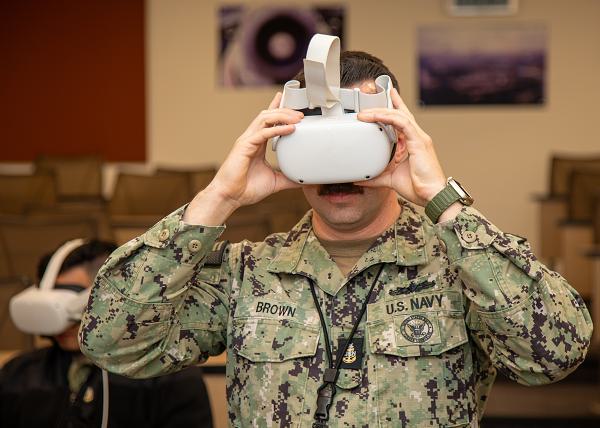
Naval Station Norfolk, Virginia. (December 14, 2024): According to the Pentagon, suicide was the leading cause of death among Army active-duty soldiers from 2014 to 2019 resulting in 883 tragic deaths. Numbers like these have caused all service branches to embrace unconventional ways to reach a young audience. In this photo by Harrison Cox, a Sailor assigned to Mid-Atlantic Regional Maintenance Center evaluates a suicide prevention virtual reality training module using an Oculus headset. There is also an interactive program addressing sexual assault.
The new technology has features young troops are familiar with and it delivers an immersive “experience” versus a traditional lecture-style course. Using artificial intelligence, these interactive programs place the user into various scenarios, often including professional actors, where they directly interact with someone in crisis.
The user is asked to respond to certain actions and the system will respond differently depending on what option is chosen.
One scenario transports the user into the cluttered bedroom of a comrade, family photos and beer cans scattered about, who is clearly in trouble. The user can intervene by talking things out and thereby gain confidence in what to say (and not say) in a real situation. The tutorial hopes to give participants greater confidence and the courage to intervene.
The DOW ’s goal is to reduce the stigma associated with talking about suicide so that servicemembers will seek help. The services have also shifted their mental health focus to address a variety of other life stresses on troops, including financial woes and broken relationships that can contribute to a crisis. The military is embracing this new technology as yet another tool to stem this tragic loss of life.


